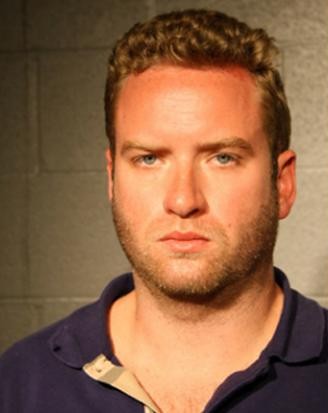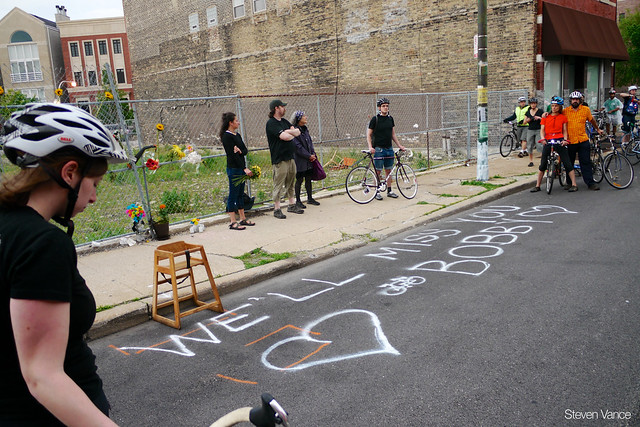At a September 23 court hearing, Ryne San Hamel, 28, who allegedly struck and killed bicyclist Bobby Cann, 25, while drunk and speeding, requested that the state give him back his impounded Mercedes, according to victim advocate Sharon Johnson. Prior to the hearing, the summary suspension of San Hamel’s driver’s license was rescinded, Johnson said. This meant the defendant, who is accused of killing Cann while driving 50 mph on a city street with a blood-alcohol content of .127, had been legal to drive for some time before the hearing.
At the hearing, the assistant state’s attorney filed a motion to amend the conditions of San Hamel’s bond so that he cannot drive, which Judge William Hooks approved, as well as the state’s request for random drug and alcohol testing for the defendant, Johnson said. However, a request for a curfew for San Hamel was denied. Johnson speculates this was because the Hooks felt a curfew would interfere with the defendant’s job with an “online directory for nightlife and entertainment” called All You Can Drink.
The fatal crash took place on May 29 on the 1300 block of North Clybourn in Old Town. San Hamel has been charged with reckless homicide, aggravated DUI, misdemeanor DUI, reckless driving, and failure to stay in the lane.
Johnson, who works for a local advocacy organization called the Alliance Against Intoxicated Motorists, said about 20 Cann family supporters, mostly friends of the cyclist and Active Transportation Alliance staff, showed up for the recent hearing. “It’s obvious Bobby had a lot of friends and it really seems like he was an amazing kid,” Johnson said. Unlike the previous hearing on August 2, which drew some 55 supporters, the victim’s family did not attend. “It’s costly for them to fly in from the East Coast every month or so for hearings, so they are only coming for the most important court dates,” she said.
Although the defense is arguing that there is no reason for the state to keep San Hamel’s vehicles, Johnson said the vehicle should remain impounded as evidence and for safety reasons, since this will help ensure that he doesn’t drive. “Also, the impact of giving someone back their car after they’ve killed a family member with it can be devastating,”she said.
The next hearing will take place this Monday, October 7, at 10 a.m. at the Cook County Courthouse at 26th and California in room 301. At this hearing Hooks will determine whether or not San Hamel can get his car back, Johnson said.
On Friday, October 25, at 1 p.m., there will be a ceremony to mark the installation of an honorary street sign for Cann at Clybourn and Larrabee. Cann, who worked at Groupon, has been widely described as a safe cycling advocate. “They’re doing it because of all his efforts to promote safe biking, so that’s pretty cool,” Johnson said.
The Alliance Against Intoxicated Motorists was formed in 1982 by two family members of people killed by drunk drivers. “Back then the drinking age was 21 in Illinois but it was only 18 in Wisconsin, so a lot of young people would drive up there to drink and come home drunk,” Johnson said. “They called it the Blood Border because there were so many crashes. A few years later the federal government told states that if they didn’t raise their drinking age to 21 they would lose highway funds.” Currently AAIM does advocacy work in Cook County and some of the collar counties.
Johnson herself suffered a life-changing injury due to a drunk driver. She was working as a police officer in suburban Des Plaines when she responded to a DUI crash. “I was trying to get there quick when I drove over some grass and into a ditch,” she said. “That was my last day of work. I suffered severe spinal injuries and, after multiple back surgeries, I still have a severe spinal disability.”
After a drunk driver killed a friend of Johnson’s husband in Chicago, the family of the deceased needed a victim advocate, which motivated her to apply for a position with the alliance. “My job as an advocate is to go with the family to court and help them through the process,” she said. “No one really ever gets over their child getting killed by a DUI. You just learn to survive it.”






